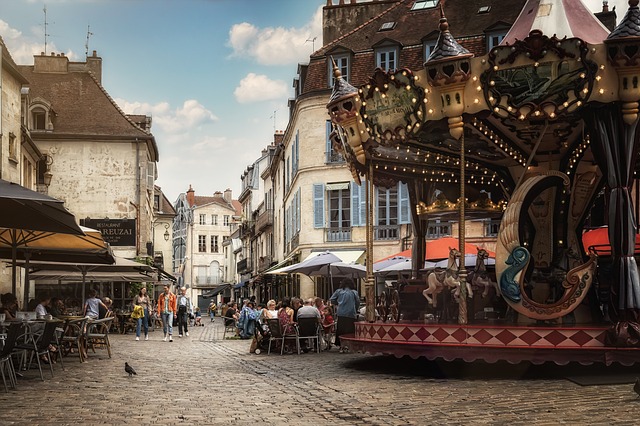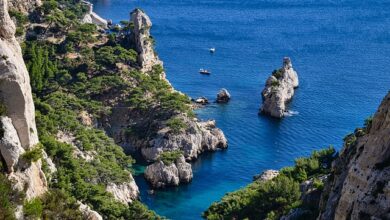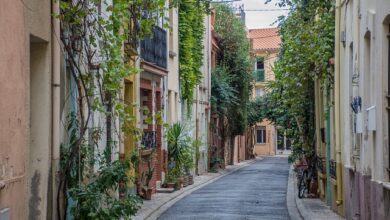Traditional Festivals and Cultural Events in France

France, renowned for its rich history, vibrant culture, and artistic heritage, is a country that celebrates life through an array of traditional festivals and cultural events. From the colorful parades of Carnival to the solemnity of religious ceremonies, France offers a diverse tapestry of traditions that reflect its deep-rooted customs and modern-day innovations. Whether you’re a history enthusiast, a food lover, or simply someone who enjoys immersing themselves in local culture, France’s festivals provide an unforgettable experience. Let’s explore some of the most iconic celebrations that define French culture.
1. Bastille Day (La Fête Nationale)
Date: July 14th
No discussion about French festivals would be complete without mentioning Bastille Day, the national holiday of France. Celebrated annually on July 14th, this day commemorates the storming of the Bastille prison in 1789, marking the beginning of the French Revolution. It symbolizes freedom, equality, and fraternity—the core values of the French Republic.
On Bastille Day, cities across France come alive with festivities. Paris hosts a grand military parade along the Champs-Élysées, attended by thousands of spectators and broadcast worldwide. Fireworks light up the skies over landmarks like the Eiffel Tower, while lively street parties and concerts fill neighborhoods with music and laughter. Traditional dishes such as ratatouille and coq au vin are served at family gatherings, making it a perfect blend of patriotism and conviviality.
For tourists visiting during this time, Bastille Day offers a unique opportunity to witness the pride and unity of the French people firsthand.
2. Carnival of Nice (Carnaval de Nice)
Date: February/March (before Lent)
The Carnival of Nice is one of the oldest and most famous carnivals in the world, dating back to the Middle Ages. Held in the weeks leading up to Lent, this festival transforms the city into a kaleidoscope of colors, costumes, and creativity.
At the heart of the carnival are the elaborate floats adorned with papier-mâché figures, often satirizing political figures or current events. Flower parades, known as “Battles of Flowers,” see participants tossing fresh blooms into the crowd, creating a fragrant and joyful atmosphere. Street performers, musicians, and dancers add to the festive spirit, while masked balls harken back to the elegance of bygone eras.
Visitors can also indulge in local delicacies like socca (chickpea pancakes) and barbajuan (fried dumplings), which are staples during the carnival season. The Carnival of Nice is not just a celebration; it’s an immersive journey into the artistic soul of the French Riviera.
3. Fête de la Musique
Date: June 21st
Music lovers around the globe look forward to June 21st, when France celebrates the Fête de la Musique, or World Music Day. This free, nationwide event encourages both amateur and professional musicians to take to the streets and perform in public spaces. From classical orchestras to jazz bands and rock ensembles, every genre imaginable finds a place in this inclusive celebration.
In Paris, iconic locations like Montmartre and Place des Vosges become stages for impromptu performances, drawing crowds of all ages. Smaller towns and villages also participate, turning their squares and parks into hubs of musical expression. What makes this festival truly special is its accessibility—anyone can join in, whether as a performer or an audience member.
Fête de la Musique underscores France’s commitment to fostering creativity and community through art, making it a must-attend event for anyone visiting during the summer solstice.
4. Christmas Markets (Marchés de Noël)
Date: Late November to December 24th
As winter sets in, France embraces the magic of the holiday season with its enchanting Christmas markets. Originating from the Alsace region, these markets have become a beloved tradition throughout the country, attracting millions of visitors each year.
Strasbourg, often referred to as the “Capital of Christmas,” boasts one of the largest and most picturesque markets in Europe. Stalls brimming with handcrafted ornaments, wooden toys, and seasonal treats like mulled wine (vin chaud) and bredele cookies create a cozy and nostalgic ambiance. Carol singers, ice-skating rinks, and twinkling lights further enhance the festive charm.
Other notable markets include those in Colmar, Lyon, and Paris, each offering its own unique flair. For many, exploring these markets is a cherished way to embrace the warmth and joy of the holiday season.
5. Festival d’Avignon
Date: July
For theater enthusiasts, the Festival d’Avignon is a highlight of the French cultural calendar. Founded in 1947, this prestigious performing arts festival showcases cutting-edge plays, dance performances, and experimental works by artists from around the world.
The historic city of Avignon serves as the backdrop for this event, with venues ranging from ancient courtyards to modern theaters. The festival’s centerpiece is the Palais des Papes, where large-scale productions captivate audiences under the Provençal sun. In addition to ticketed performances, the OFF section of the festival features hundreds of independent shows, ensuring there’s something for everyone.
The Festival d’Avignon exemplifies France’s dedication to nurturing artistic talent and pushing creative boundaries, making it a pilgrimage site for culture aficionados.
6. Tour de France
Date: July
While not a traditional festival in the conventional sense, the Tour de France is undeniably one of the country’s most celebrated sporting events. Since its inception in 1903, this grueling bicycle race has captured the imagination of millions, becoming a symbol of endurance and determination.
Spanning three weeks and covering thousands of kilometers, the Tour de France takes cyclists—and spectators—through breathtaking landscapes, from the rugged Alps to the sun-drenched vineyards of Provence. Towns along the route host vibrant fan zones, where locals and visitors gather to cheer on their favorite riders. The final stage culminates in Paris, with the iconic finish line on the Champs-Élysées.
Even if you’re not a cycling enthusiast, the camaraderie and excitement surrounding the Tour de France make it a thrilling spectacle to behold.



